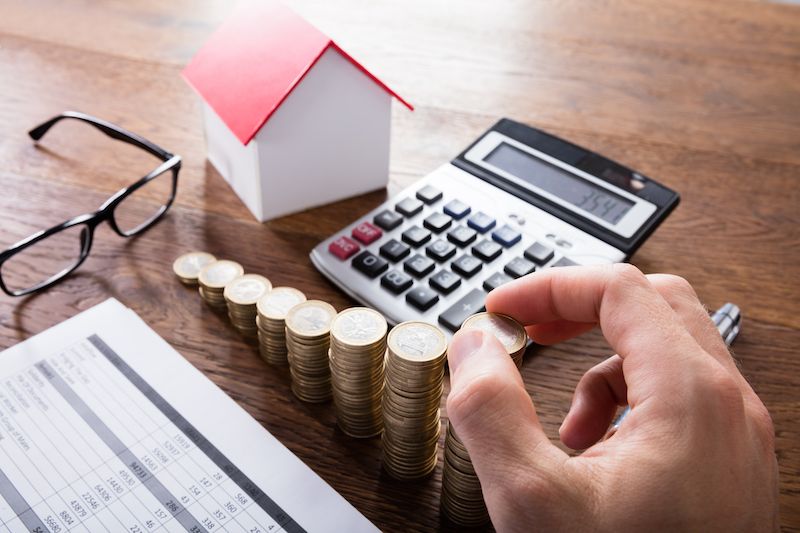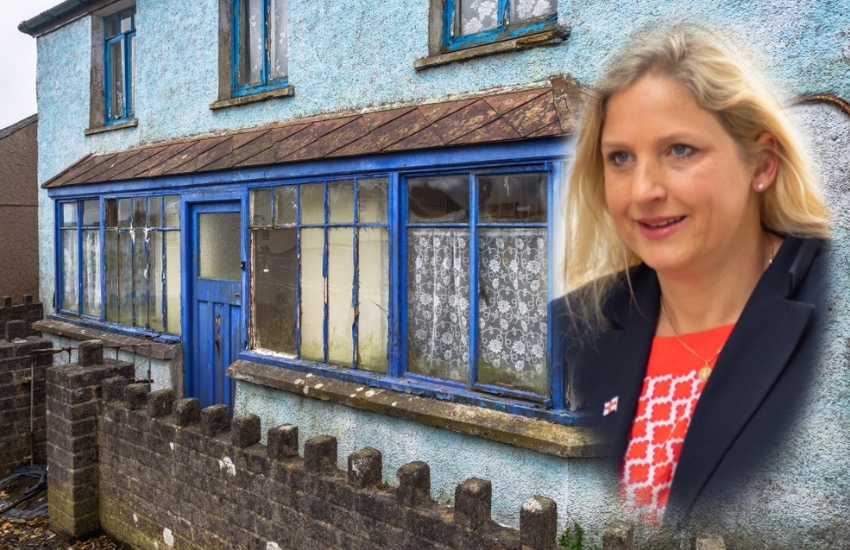


Several challenges to P&R’s property tax plans have been made ahead of next week’s budget debate, with some seeking to limit the inflation-busting TRP increases proposed for larger properties.
Policy & Resources hopes to raise an additional £2.2m in revenue next year, with the bulk coming from a shake-up to domestic and commercial property taxes through TRP reforms and an average 17% hike in rates for homes.
Those with the smallest properties in the new first band would see annual increases linked only RPIX, while additional charges would be triggered for larger properties. Those with a TRP rating of over 500 would see taxes go up by inflation plus 40%.
Commercial TRP tariffs are in line for a 7.5% increase also, estimated to raise £850,000 in real terms. Taxes on commercial car parks, both multi-storey and outside areas, could be massively increased too.
P&R also wants the States to increase penal TRP rates for derelict properties, glasshouses, and the non-development of sites, at five times the standard tariff. It’s proposed that properties, used as homes or businesses, which are left empty for over six months without a suitable reason should be subject to increased charges.
But several deputies will attempt to increase that time period as they view it as prohibitively short, among other amendments to the budget.

Pictured: Deputy Victoria Oliver wants renovations to be excluded from a tax targeting empty properties.
Deputies Victoria Oliver and John Dyke, both members of the Development & Planning Authority, want the budget to be clear that any property which is undergoing renovations to be “deemed occupied” until works are complete.
They say enhanced taxes shouldn’t be “payable on a building on the basis that the landlord is investing in the property by renovating it and it is not let within the relevant period”.
The time period should also be increased from six to 12 months before penal rates can kick-in: “This extension will give the landlord or agent further time to advertise the property, carry out the necessary checks and draw up a lease."
A near identical amendment has been submitted by Deputies Peter Roffey and Adrian Gabriel to also extend the non-occupancy limit to a year.
“We presume the purpose of the proposed enhanced rate of TRP on vacant properties is to deter owners from wilfully leaving them empty. But if a property becomes vacant, and requires considerable work during the void period, then six months is not deemed to be a reasonable length of time to complete such work before the penal rate kicks in,” they said.
One of these amendments could be withdrawn since they both seek to achieve the same objective.

Pictured: Deputy Peter Roffey is seeking two changes to P&R's property tax plans.
Meanwhile, Deputy Roffey and Deputy Aidan Matthews want to stop the large hikes in domestic TRP for several bands of properties to represent an average increase of 10.1%, not 17%.
For properties up to a rating of 199, the rates would be untouched with the largest increase being inflation plus 6%, but want reductions for larger properties above the rate of inflation, as well as a “suitable deferred payments scheme” put in place for those unable to afford the higher rates.
Properties with a rating of 200 and above would only see rates increase by 8.1% above inflation.
“There are a number of people with very modest incomes who may be impacted by the proposed very high increases in the higher bands, particularly as TRP rates are applicable to property size and not property value,” they said.
“Proposition 20A seeks to restrain any future TRP increases until the issues surrounding this cohort of islanders has been addressed. The concern being that continued pursuit of ever higher property taxes, without such provisions, risks creating significant pockets of poverty."
It’s estimated these changes would reduce revenue for 2024 by £0.7m, while the cost of delivering a deferred payment scheme is unknown.
Deputies David de Lisle and Liam McKenna are also seeking to reduce domestic TRP rates for all bands, but more so for larger properties, with increased tariffs limited to inflation plus 7.5%.
“The above inflationary increases for the higher bands are assumed at 50% of that proposed in the Budget, whereas the inflationary increases for the lower bands are assumed to be circa 70% of that proposed in the Budget,” they said.
Under this plan, those with a TRP rating above 500 would pay a 20% uplift on inflation, instead of 40%, while the smallest three bands would have a 1% reduction, excluding those with a rating up to 99 which are only proposed to increase by the rate of inflation.
The cost of these changes is estimated to be a £0.6m reduction in 2024 revenues.
The Budget will be debated from 7 November, and 14 amendments have been lodged so far.
Property tax shake-up key feature of 2024 budget
Comments
Comments on this story express the views of the commentator only, not Bailiwick Publishing. We are unable to guarantee the accuracy of any of those comments.